Collection
Date
Location
Type
15 results
Remembering 1807
In 1807 Britain legally abolished the slave trade, although it continued to participate in and profit from the institution of slavery. In 2007 the British government committed public funds to mark the bicentenary of the Slave Trade Act. The Remembering 1807 project has collected and archived material relating to the many events and activities that took place during 2007. These records help us to locate and understand the place of slavery, the slave trade and its abolition in the UK’s public history, commemorative traditions and popular memory. Background to the collection...
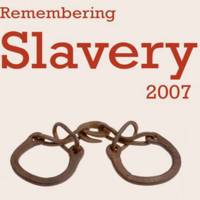
Remembering Slavery 2007
Remembering Slavery 2007 was a regional initiative involving museums, galleries and other cultural organisations across the North East of England in a programme of exhibitions, events, performances, lectures and activities to explore the themes of slavery and abolition, in both historical and modern…
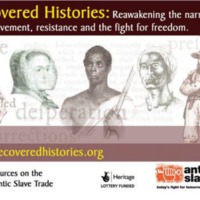
Recovered Histories
In the Recovered Histories online resource, Anti-Slavery International digitised and made accessible for the first time a collection of over 800 pamphlets dating from the 18th and 19th centuries relating to the transatlantic slave trade. The resource captured the narratives of the enslaved, the…
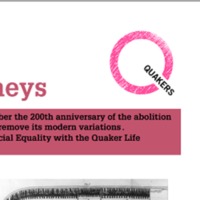
Quakers and the path to abolition in Britain and the colonies
The Society of Friends expressed its formal opposition to the slave trade in 1727, and from that date were vocal opponents of transatlantic slavery. A virtual exhibition of archived resources, ‘Quakers and the path to abolition in Britain and the colonies’, was launched online to commemorate the…
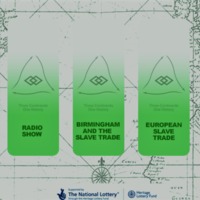
Three Continents, One History: Birmingham, the Trans-Atlantic Slave Trade and the Caribbean
'Three Continents, One History' was a community project led by the African-Caribbean Millennium Centre (ACMC) to explore the historical links between Birmingham, the transatlantic slave trade and the Caribbean. Research focused on themes such as the region's manufacturing history and its links to…
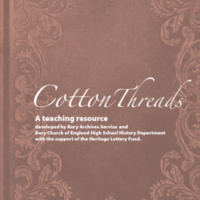
Cotton Threads
Bury Archives and Museum collaborated on an exhibition based on the journals, letters and other papers of John Hutchinson. The Hutchinson family's cotton spinning business had links to slavery in the United States: in 1848, John Hutchinson travelled to America to buy cotton produced by slaves. The…
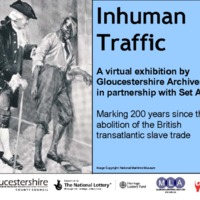
Inhuman Traffic
The Inhuman Traffic project was led by Gloucestershire Archives, in partnership with the Set All Free initiative. The virtual exhibition and accompanying web resource were based on documents held at Gloucestershire Archives and, in particular, the papers of the anti-slavery campaigner Granville…
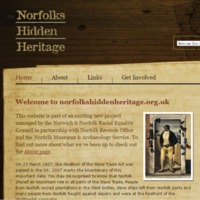
Norfolk's Hidden Heritage
Norfolk’s Hidden Heritage was a partnership project between the Norwich and Norfolk Racial Equality Council (NNREC), the Norfolk Record Office (NRO) and the Norfolk Museums and Archaeology Service (NMAS) which researched the links between Norfolk and transatlantic slavery. For example, many…
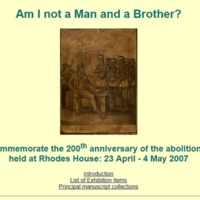
Am I Not a Man and a Brother?
‘Am I Not a Man and a Brother?’, an online exhibition to mark the bicentenary, was launched by the Bodleian Library of African and Commonwealth Studies at Rhodes House. Some of the items were also on view in an exhibition at Rhodes House in April and May 2007. The exhibition included manuscripts…

Trading Faces: Recollecting Slavery
Trading Faces: Recollecting Slavery was a consortium project developed by Future Histories (a non-profit organisation set up to maintain archives of African, Caribbean and Asian performing arts in the UK), Talawa Theatre Company (a leading Black-led touring theatre company) and V&A Theatre…
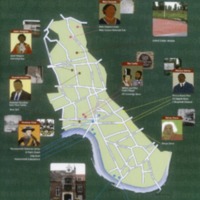
Remembering Slavery in Hammersmith and Fulham
Hammersmith and Fulham Urban Studies Centre is a voluntary educational organisation which offers opportunities to children and young people to learn about the local urban environment. The online curriculum resource 'Remembering Slavery' aimed to inform teaching and learning about the transatlantic…
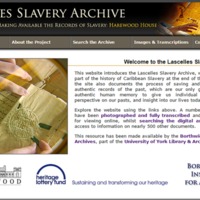
Lascelles Slavery Archive
The Lascelles Slavery Archive was a collaborative project between the Borthwick Institute for Archives and Harewood House Trust to conserve, preserve and make available records relating to slavery from the archives of the Lascelles family of Harewood House, Yorkshire. The project deals with a new…

Breaking Chains - Sheffield Civil Rights
Breaking Chains - Sheffield Civil Rights was a project by Sheffield Galleries and Museum Trust to look at the slave trade and to celebrate Sheffield’s heritage by exploring the role local campaigners played in securing workers' rights. The resources targeted Key Stage 2 pupils. There was a…
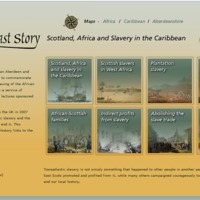
A North East Story: Scotland, Africa and Slavery in the Caribbean
This online exhibition and learning resource linking the history of transatlantic slavery to North East Scotland was organised by an Aberdeen and Aberdeenshire Bicentenary Committee, including representatives from Aberdeenshire Council, Aberdeen City Council, the University of Aberdeen, the Robert…
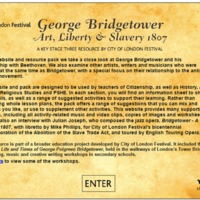
George Bridgetower: Art, Liberty and Slavery 1807
In this website and Key Stage 3 Resource Pack, the City of London Festival examined the work of the Afro-European violinist George Bridgetower (1778-1860) and, in particular, his relationship with the composer Ludwig van Beethoven. The resource also explored the role of other artists, writers and…
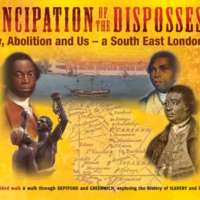
Emancipation of the Dispossessed: Slavery, Abolition and Us - a South East London angle
Emancipation of the Dispossessed was a local community project exploring the local history of Deptford and the surrounding areas and the connections with the transatlantic slave trade. Community groups and students from Lewisham College worked with theatre educators to research and develop 'Blood…